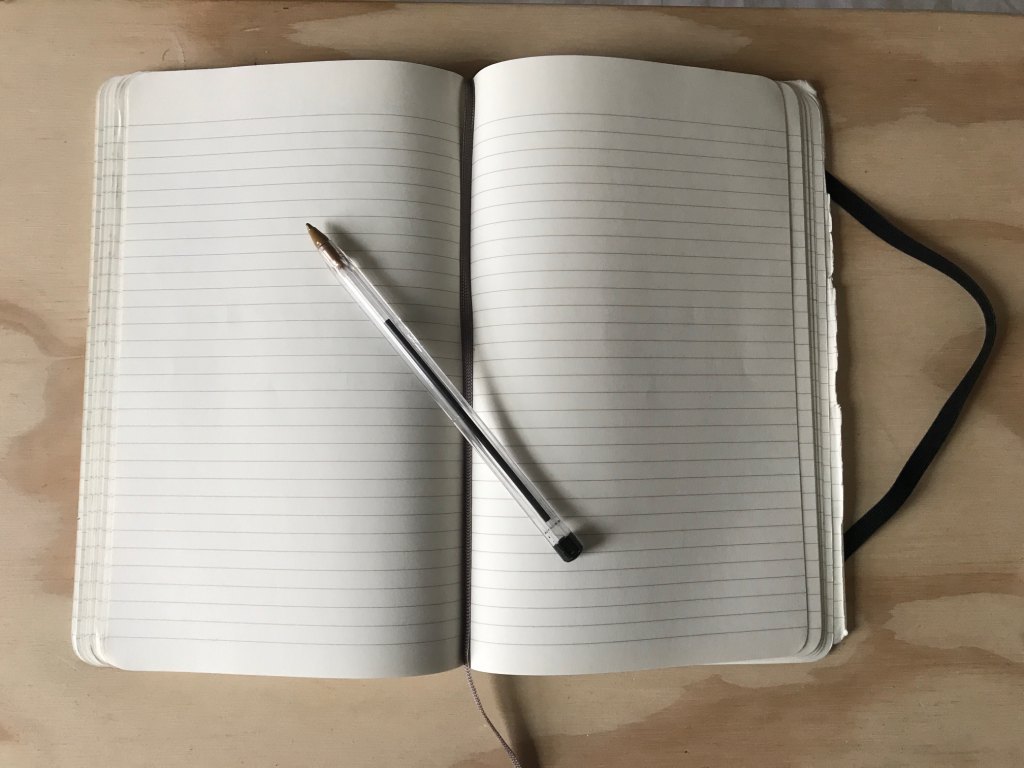Material Reflections – My Notebook – Lee Griffiths
Material Reflections is a collection of short reflective pieces exploring the complex personal relationships that people form with material things. Bringing together perspectives from a range of academics, students, and cultural practitioners, the project seeks to highlight the breadth and plurality of ways in which material things impact upon our ideas, identities, research, and practice. This Material Reflection comes from Lee Griffiths, who is is a graduate of the Royal Birmingham Conservatoire and has performed around the UK and Europe with groups such as the Rachel Musson Ensemble and Birmingham Improvisers Orchestra. Having recently finished an MA in Media and Cultural Studies at Birmingham City University, Lee’s research explores philosophy and improvised music.

This is my notebook.
I take it with me whenever I am going to a lecture, seminar, or other research event, and when I am listening to somebody presenting at one of these events, I take notes. The reason I take notes though, is not in order to remember. The purpose of my notebook is not that of a technology of memory, intended to preserve with perfect fidelity those thoughts which I might want to recall at some point in the future.
I hardly ever look at the notes I’ve taken.
When I am listening to somebody talk about their research I am often swept up in the current of their narrative. I can be struck by my own thoughts and impressions about what is being said, but so slowly do my thoughts emerge as coherent that they can be lost even before they have begun. Whatever I suspect I am thinking or may have thought, simply doesn’t matter. It takes time to make a thought matter.
This is where my notebook comes in. It takes time to write down an idea, and for me, the time that it takes is what makes it useful. Momentarily, I can tune out of the speaker’s rhythm and a new tempo can be negotiated between me and the page.
It takes time to write down an idea and we can therefore call it a process but it also takes space. What is written down is spatialised and we can therefore call it a product. In fact, what is written down wavers between process and product to the extent that any distinction between the two terms would be artificial. It is both the doing and the being of thought.
So it is with and through the time-space of my notebook that my thoughts and impressions come to matter. They make differencesinmatter (i.e. the physical matter of the pen, paper, and ink) and they make differences thatmatter. It is through the articulation of thought via the written word along with whatever the thought loses or gains in the process and product, that I am able to listen to myself.
And what I am listening for is coherence.
If I am lucky, what emerges is a coherence between what the speaker has said, my impression of what has been said, what is written down, and some possible future in which the thought can be made useful. More often than not, what emerges doesn’t make sense of these connections. Sometimes what emerges makes no sense at all. What is important though, whether what I’ve written makes sense or not, is that I have had the time and the space to listen.
